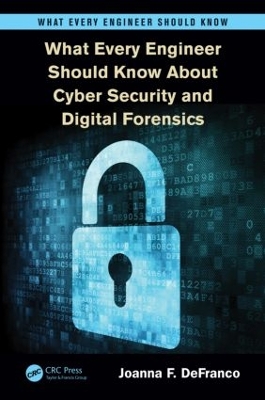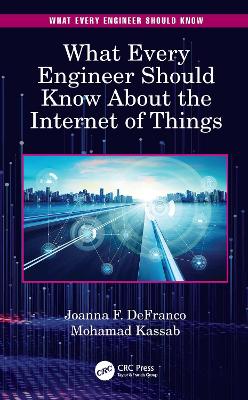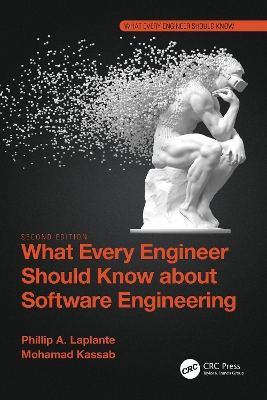What Every Engineer Should Know
3 total works
What Every Engineer Should Know About Cyber Security and Digital Forensics
by Joanna F. DeFranco
Most organizations place a high priority on keeping data secure, but not every organization invests in training its engineers or employees in understanding the security risks involved when using or developing technology. Designed for the non-security professional, What Every Engineer Should Know About Cyber Security and Digital Forensics is an overview of the field of cyber security.
Exploring the cyber security topics that every engineer should understand, the book discusses:
- Network security
- Personal data security
- Cloud computing
- Mobile computing
- Preparing for an incident
- Incident response
- Evidence handling
- Internet usage
- Law and compliance
- Security and forensic certifications
Application of the concepts is demonstrated through short case studies of real-world incidents chronologically delineating related events. The book also discusses certifications and reference manuals in the area of cyber security and digital forensics.
By mastering the principles in this volume, engineering professionals will not only better understand how to mitigate the risk of security incidents and keep their data secure, but also understand how to break into this expanding profession.
What Every Engineer Should Know About the Internet of Things
by Joanna F. DeFranco and Mohamad Kassab
Internet of Things (IoT) products and cyber-physical systems (CPS) are being utilized in almost every discipline and there continues to be significant increases in spending on design, development, and deployment of IoT applications and analytics within every domain, from our homes, schools, government, and industry. This practical text provides an introduction to IoT that can be understood by every engineering discipline and discusses detailed applications of IoT. Developed to help engineers navigate this increasingly important and cross-disciplinary topic, this work:
- Offers research-based examples and case studies to facilitate the understanding of each IoT primitive
- Highlights IoT’s connection to blockchain
- Provides and understanding of benefits and challenges of IoT and its importance to a variety of engineering disciplines
Written to be accessible to non-experts in the subject, What Every Engineer Should Know About the Internet of Things communicates the importance of this technology and how it can support and challenge all interrelated actors as well as all involved assets across many domains.
What Every Engineer Should Know about Software Engineering
by Phillip A. Laplante and Mohamad Kassab
This book offers a practical approach to understanding, designing, and building sound software based on solid principles. Using a unique Q&A format, this book addresses the issues that engineers need to understand in order to successfully work with software engineers, develop specifications for quality software, and learn the basics of the most common programming languages, development approaches, and paradigms. The new edition is thoroughly updated to improve the pedagogical flow and emphasize new software engineering processes, practices, and tools that have emerged in every software engineering area.
FEATURES
- Defines concepts and processes of software and software development, such as agile processes, requirements engineering, and software architecture, design, construction
- Uncovers and answers various misconceptions about the software development process and presents an up-to-date reflection on the state of practice in the industry
- Details how non-software engineers can better communicate their needs to software engineers and more effectively participate in design and testing to ultimately lower software development and maintenance costs
- Helps answer the question: How can I better leverage embedded software in my design?
- Adds new chapters on software architecture, software engineering and systems, and software engineering and disruptive technologies, as well as information on cybersecurity
- Features new appendices that describe a sample automation system, covering software requirements, architecture, and design
This book is aimed at a wide range of engineers across many disciplines who work with software.


